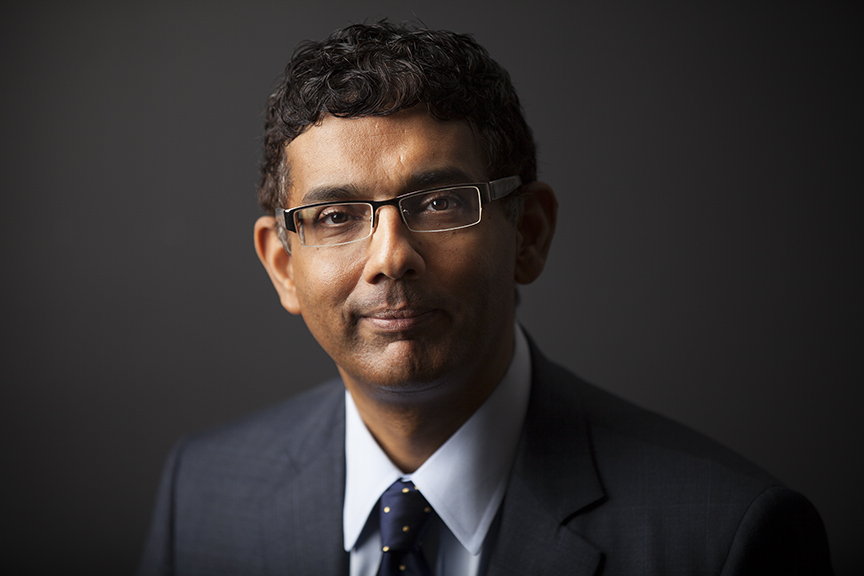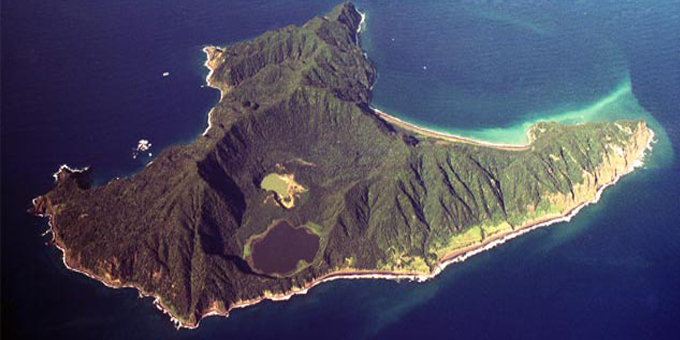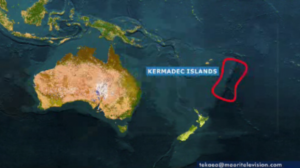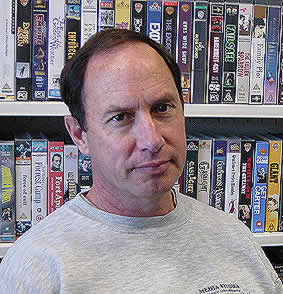Can a national park be a person? New Zealand says yes
Te Urewera national park has been granted legal personhood, meaning nobody owns it. The park has the same rights and powers as a citizen. The ruling could set a new precedent for land rights and conservation around the world.
Posted by The Guardian on Saturday, 3 September 2016
Author: Kiwi
A foolish system for correcting benefits of past white priviledge

This video shows a privileged American college kid who advocates for wealth redistribution using a new system to address the injustice of certain white people today. He makes the point that these privileges were not available to African Americans, thus they were and still are being disadvantaged today as a result. However the speaker Dinesh D’Souza has other ideas and points out the hypocrisy in this young SJW’s (social justice warrior) argument.
D’Souza notes that the SJW hasn’t given up his own wealth, advantage, or seat at the college he attends to someone less privileged than himself. D’Souza continues by saying that personal action should be taken first, then others might believe and follow his example. Instead it seems that the SJW wants action to be taken elsewhere rather than make sacrifices himself.
The SJW’s argument if taken seriously would in all likelihood require an agency with the power to re-allocate wealth and resources which is tantamount to creating another Soviet Union that nobody really wants. Yet this young SJW may well spend the best years of his life fighting for this Leftist economic system and in the instance that he got what he wanted, he would likely end up being silenced by the very system he helped create.
Of course it is well known that taking profits from the productive class and distributing it to a political class lead to poverty, because it kills any incentive toward production and reward. These kinds of socialist conditions end up leading to suffering as eventually there would not be enough wealth to help the underprivileged, old, and sick. In fact it is the Free Market System that is more efficient at helping the poor and vulnerable because it generates more wealth which in-turn provides a bigger pool of funds for the government and other organisations to draw upon.
While this video is about so-called White Privilege, D’Souza points out universal truths that apply very much to New Zealand society today regarding Maori-Pakeha relations and redress from past injustices. D’Souza gives the example of native Americans who demand land that they themselves stole from other native American tribes through conquest. His argument is applicable for New Zealand in the face of Maori demands for land from which they themselves gained through conquest.
Dinesh D’Souza DESTROYS Leftist College Students Arguments
Hobson’s Pledge to oppose Maori favouritism

Don Brash fronts a new group to fight the Maori gravy train. Named Hobson’s Pledge, the group’s mission is to bring New Zealand toward equality for all New Zealanders and end race-based policies and privileges. It calls itself an anti-separatism’ group and brings back the Iwi vs Kiwi campaign from 10 years ago.
Many Pakeha are fed up with politicians pandering to Maori radicals and with the false sense of Maori entitlement that pervades New Zealand society in the 21st century. It is not that many Pakeha feel that they need a leg up or special privilege, rather they just want what many other civilised nations have, equality for all citizens regardless of race. In short, many New Zealanders are apposed to Apartheid, that wretched system enforced through legislation that divides people by race.
More than 10 years ago, Don Brash launched the Iwi vs Kiwi campaign and went into an election with the the idea of New Zealand being a nation of one people regardless of race. His party narrowly missed out winning the 2005 election and with Labour in power followed by a John Key led National Party, we have seen Maori try to claim everything from rights to fresh water to fishing rights in the Kermadec Ocean Sanctuary.
This kind of behaviour is despised by many New Zealanders who feel like second-class citizens in their own country. With no lobby group or political party to hear their voice, many New Zealanders vent their frustration in blogs, social media, and internet forums. It seemed only a matter of time before some kind of funded group or party would arise to voice their concerns.
Arise ‘Hobson’s Pledge’, a group that derives it’s title from Governor Hobson who upon the signing of the Treaty of Waitangi. greeted each Maori chief with the following pledge: “he iwi tahi tatou” – “we are now one people”. The group’s ideals can be summed up in this paragraph that appears on their homepage.
Our vision for New Zealand is a society in which all citizens are equal before the law, irrespective of when they or their ancestors arrived in this land.
Hobson’s Pledge is a funded group that will put their weight behind any political party that commit to the following ideals:
- Remove all reference to consultation with any ethnic group from the proposed changes to the Resource Management Act;
- Hold a referendum on scrapping separate Maori electorates;
- Drop the proposal to grant tribal trusts special powers to control the allocation of water – something previously regarded as the exclusive province of local government.
Justification for Hobson’s Pledge core ideals are based on their following views:
- There is nothing in the Treaty of Waitangi justifying any racial preference under the law;
- Legal equality between citizens is the foundation stone of democracy;
- True democracy has proven to be the most enduring and successful system of government; and
- Race-based privilege creates opportunities for corruption, resentment, and unrest.
We can only hope that a good number of New Zealanders get behind this group’s values. If this happens, it is more likely that a political party will work with the group in order to gain the support and vote of their supporters.
Maori don’t want a Kermadec sanctuary

In this day and age of natural exploitation it comes as a breath of fresh air when the New Zealand government proposes that the Kermadec region become a sanctuary free of fishing and mining. But what is nature’s gain and a good precedent for other countries to follow, is loss for Maori it seems. Once again we see the selfishness of some Maori who are only interested in their own commercial gain even at the expense of the rest of New Zealand and in this case the whole world.
The Kermadec Islands and Maritime boundary contain some of the most pristine marine environments on planet Earth. There is a huge variety of fish species and other wildlife including: whales, dolphins, sharks, birds, turtles, and coral. There are also lifeforms that do not need sunlight and thrive on hydro-thermal vents. It is also possible that there are thousands of undiscovered species here. Located about 1000 km northeast of the North Island, the islands stretch for 250km which are really five emergent peaks of undersea volcanoes and some smaller islets. Within this proposed sanctuary is the Kermadec-Tonga Trench the second deepest trench on the planet at about 10,882 metres (35,702 ft) deep. The protected area will comprise a whopping 620,000 square kilometres.
 But New Zealand’s environmental goodwill is opposed by Maori interests once again. Only this year did New Zealand citizens contribute money to buy back a private beach inside Abel Tasman National Park to make it part of the park for all to enjoy and to preserve. Local Maori opposed this too and rightfully lost. They seem only interested in commercial gain and at any price. Thankfully on the Kermadec Ocean Sanctuary, the New Zealand government seems resolute and are not bending toward the will of these Maori opportunists. The Māori Fisheries Trust say it is a Treaty of Waitangi issue and they say the treaty gives iwi fishing rights in this area. Prime Minister John Key said:
But New Zealand’s environmental goodwill is opposed by Maori interests once again. Only this year did New Zealand citizens contribute money to buy back a private beach inside Abel Tasman National Park to make it part of the park for all to enjoy and to preserve. Local Maori opposed this too and rightfully lost. They seem only interested in commercial gain and at any price. Thankfully on the Kermadec Ocean Sanctuary, the New Zealand government seems resolute and are not bending toward the will of these Maori opportunists. The Māori Fisheries Trust say it is a Treaty of Waitangi issue and they say the treaty gives iwi fishing rights in this area. Prime Minister John Key said:
“At the core of their belief, they believe they should be entitled to fish there even though they haven’t; they believe they should. We believe it should be a sanctuary where they shouldn’t fish.
The Government believes that Maori will still be able to catch fish here however, because the fish are mostly migratory and can be caught outside this boundary. This admission shows that the sanctuary would help fishing outside this zone because it gives them a chance to recover from over-fishing in other areas. There doesn’t seem to be any excuse or good reason to give Maori exclusive rights to this area.
Dr Brian McDonnell says one standard of citizenship for all

A New Zealand academic of Maori, Irish and French descent believes the pendulum has swung too far in redressing Maori grievances.
Dr Brian McDonnell, a senior lecturer in film studies at Massey University, says New Zealand’s “polite middle ground has become too fawning and the government too accommodating to the shrill cries of extremists”.
He told NBR ONLINE:
“Maori people have certainly been marginalised in the past and there are specific wrongs to be righted, but it’s time to draw back to the centre.
“In an effort to be nice you can be seen as a soft touch, so who can blame Maori groups for asking for the stars when the government and the Auckland Council seem ready to grant power and funds while ignoring democratic processes.
“It has been the move to enshrine the Treaty of Waitangi in a written or more formalised constitution that I feel should be the ‘bridge too far’ for well-meaning, reasonable, moderate people, both Maori and Pakeha, to say ‘enough’.
“I would certainly place myself among their number and for me it is not Maori bashing to say so.
“I am part-Maori and I want success for all Maori people, but I think dependence on a Treaty-burdened constitution will not help Maori, as its advocates claim.”
Dr McDonnell believes such a constitution will trap Maori in a “suffocating self-definition as in need of special pleading and a special status”.
“True equality comes with being treated as responsible adults who shoulder responsibilities as well as crying out for rights.
